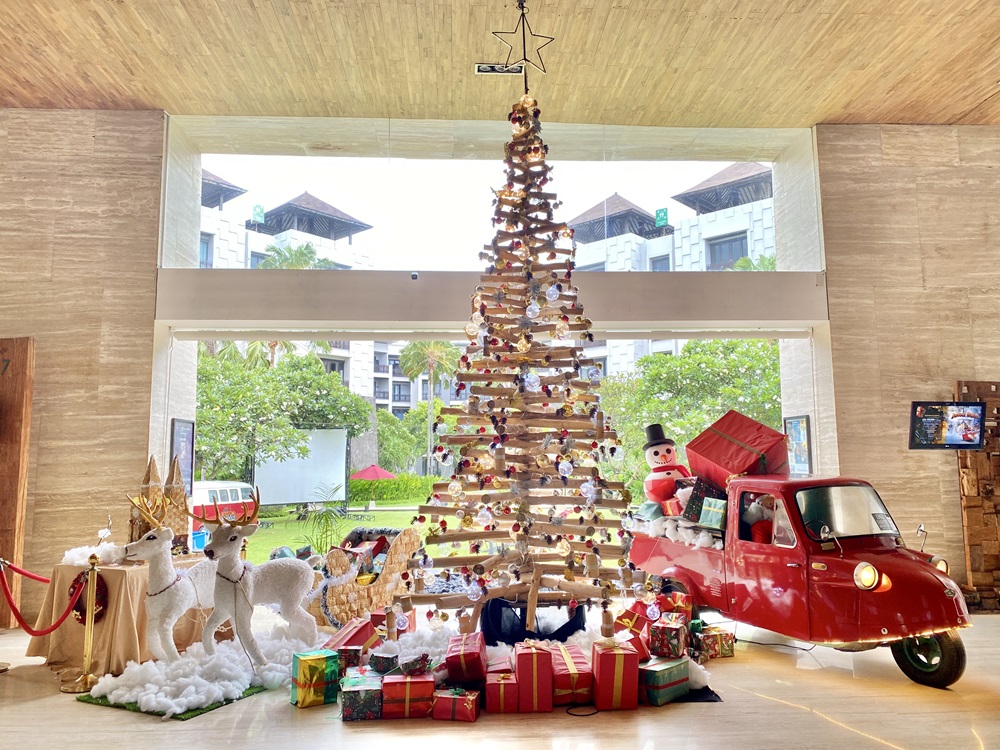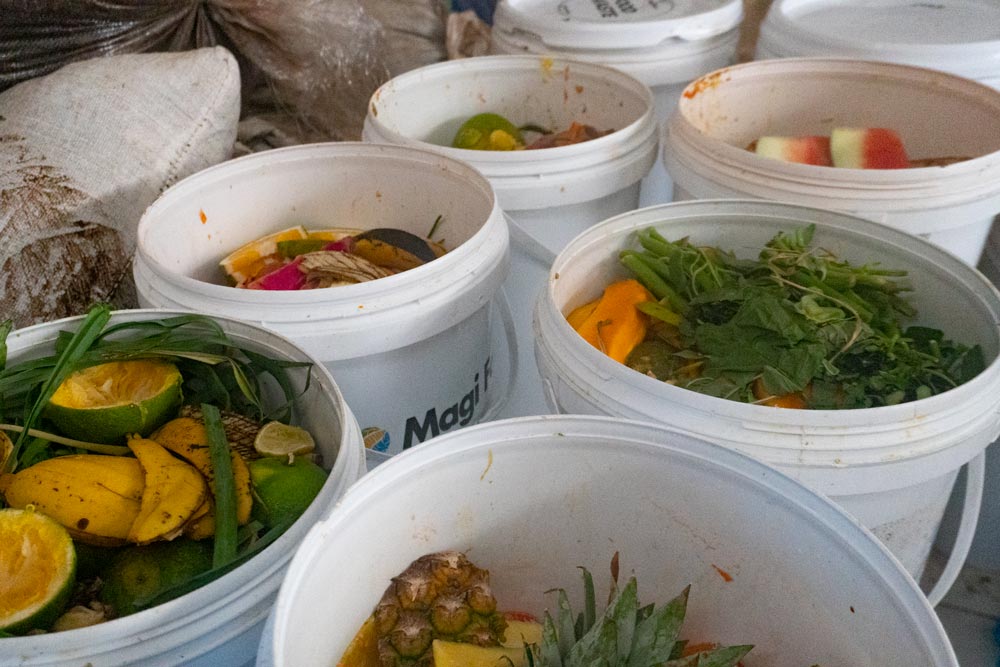
Utilising a unique method to tackle food waste issues in Bali, Magi Farm harnesses nature itself for a solution, in particular the lifecycle of black solder flies. This social enterprise introduces a system that not only removes said waste but also creates new, low-footprint products that supply both the agricultural industry and everyday consumers.
Organic waste, predominantly that of food, makes up for 22% of all waste in Bali. But one might say, so what? Organic waste decomposes and is therefore a temporary issue. Not quite: when disposed of together with one’s regular dry waste and delivered to a landfill, the decomposition process leads to a substantial methane build up, increasing the risk of fires, which Bali (and other Indonesian provinces) have witnessed in the last year. What’s more, the mixing of dry and organic waste contaminates any potentially recyclable materials, doubling its negative effects. Beyond that, throwing away food waste is itself a waste of a perfectly good energy source, if sent to the right place…
In the final quarter of 2023, Magi Farm was able to divert 7.5 tonnes of food waste away from landfills; and a further 12 tons in the first quarter of 2024. Not only was this food waste diverted, it was completely devoured, gone from existence. The consumer? The larvae of black soldier flies, who may be small in stature but their potential impact in battling Bali’s food waste issues is big!
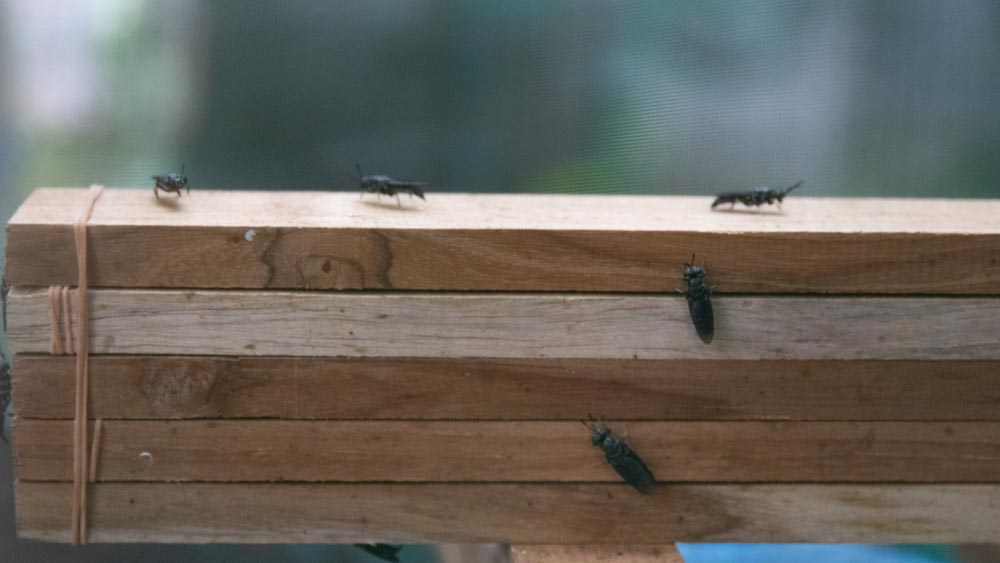
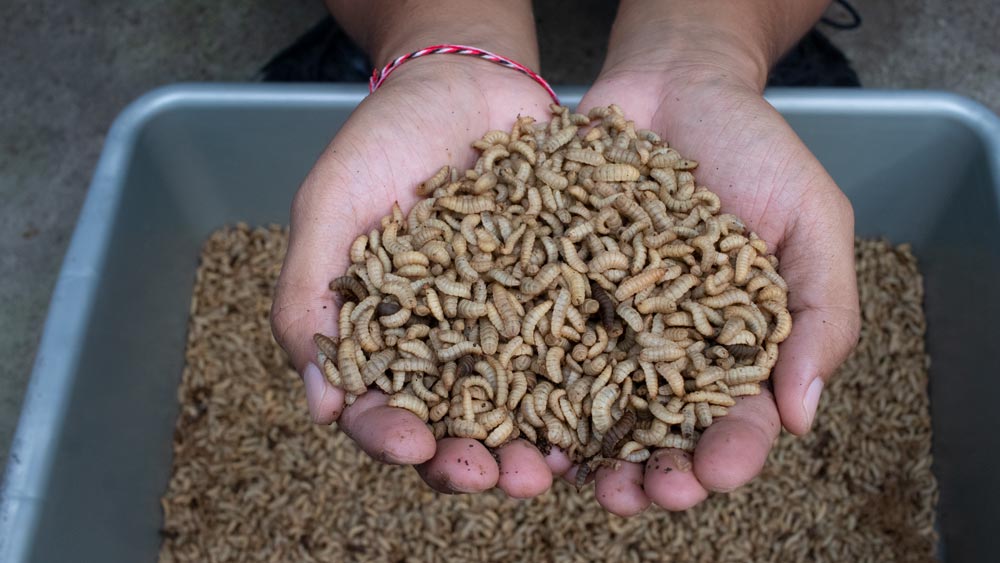
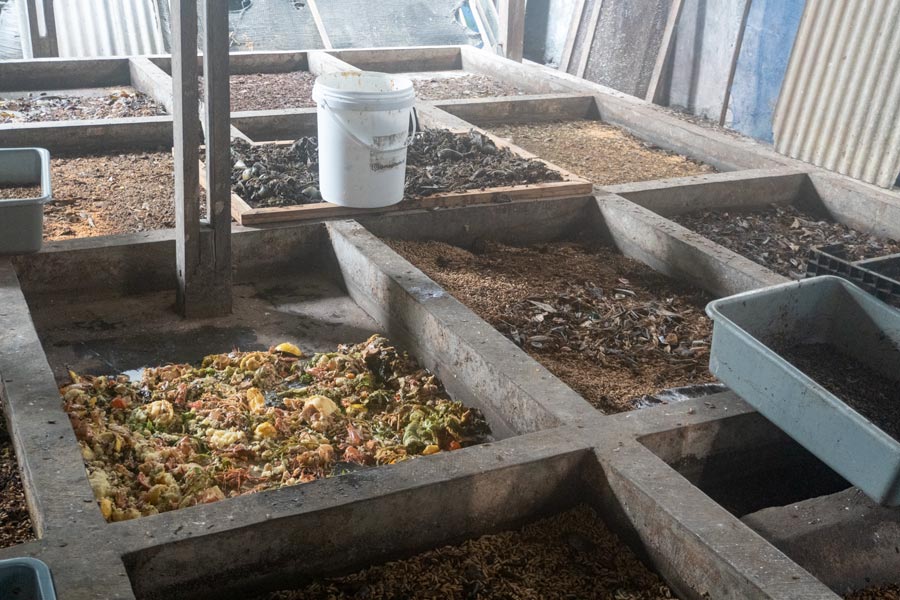
“I am Balinese myself and I see the effects of pollution on our island every day”, shares Ima Rida, co-founder of Magi Farm. “It’s important to spread awareness about this” she continues. “Tourism is our biggest source of income. If our island changes due to pollution, our lives will change too. If we make more people aware, then waste sorting will become a daily habit, and no more food waste will pile up in our landfills.”
How does this unique system work? How are black soldier flies (BSF) harnessed to reduce food waste on the island? The ‘magic’ happens at Magi Farm’s purpose-built facility in Batubulan, Gianyar Regency. Firstly, the different phases of the BSF lifecycle are followed with remarkable efficiency, as it plays an essential part in this naturally-devised waste management system. Even facility layout is divided into parts in relation to this cycle.
The life of a black soldier fly is relatively short, lasting a total of 45 days, of which they are only ‘flies’ for one week. After mating and laying their eggs, the team at Magi Farm collects these and waits for them to hatch as larvae. It is these larvae that are fed the collected food waste. A larvae can eat 5 to 10 times its body weight; which means they can consume a substantial amount of food waste in their short lifetime. Eventually, after 10 to 14 days, the larvae will enter its pupal stage. It takes another 14 days until these pupae become flies: 80% of these pupae are allowed to develop into flies to repeat this process again, whilst the remaining 20% are kept, dried and used to produce feed or fertiliser. No waste is left behind, and the cycle continues again.
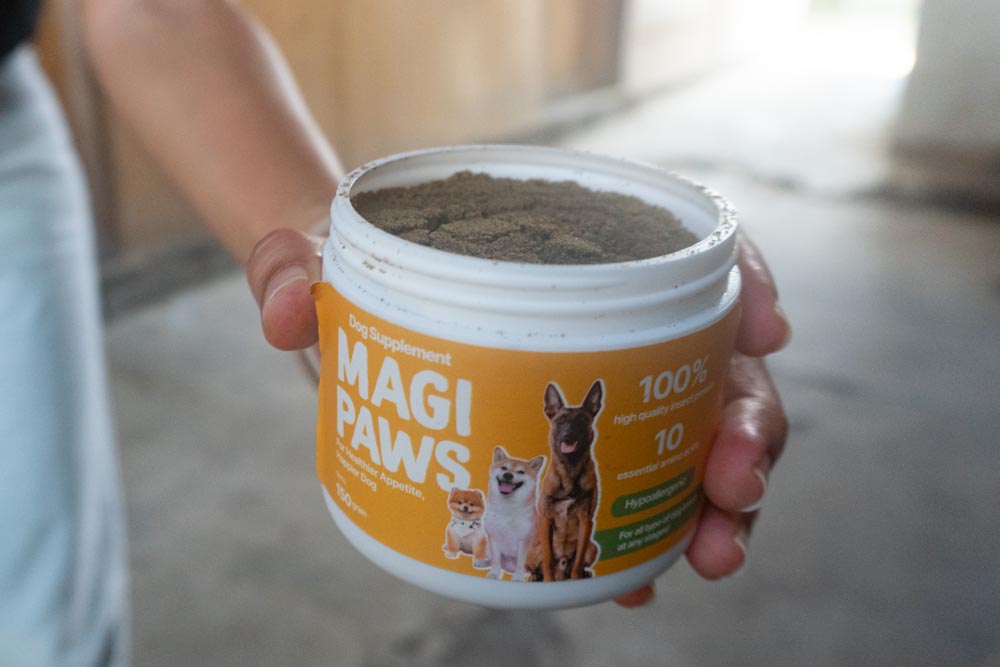
Through this system, Magi Farm has introduced promising products to the market, developing a range of low-footprint protein sources and nutrients out of the pupa they collect, harnessing the fact that 40% of its bodyweight is protein. Magi Paws is a high-protein dog food, Magi Booster is a fish feed and Magi Fertilizer has been developed for plant nutrient absorption and growth. As prices of animal feed are constantly increasing, these products create a perfect opportunity for both environment and farmers.
Convincing people has been the most challenging aspect for the team at Magi Farm. The use of larvae in battling food waste is an alternative method that many people are not yet familiar with. Focusing on changing perceptions and increasing awareness has been crucial, so Magi Farm organises educational programs, farm experiences, participates in events, and interacts with locals to foster a positive view of this approach.
Of course, making a change requires collaboration. Hotels, restaurants and businesses already donate their food waste to Magi Farm: the food waste gets collected 1 to 3 times a week, depending on its volume. In fact, the hospitality industry has been big supporters, with five-star resorts working with Magi Farm to develop similar systems on-property. Grand Hyatt Bali, for example, has seven black soldier fly units that has helped to manage up to 80% of the resort’s own food waste.
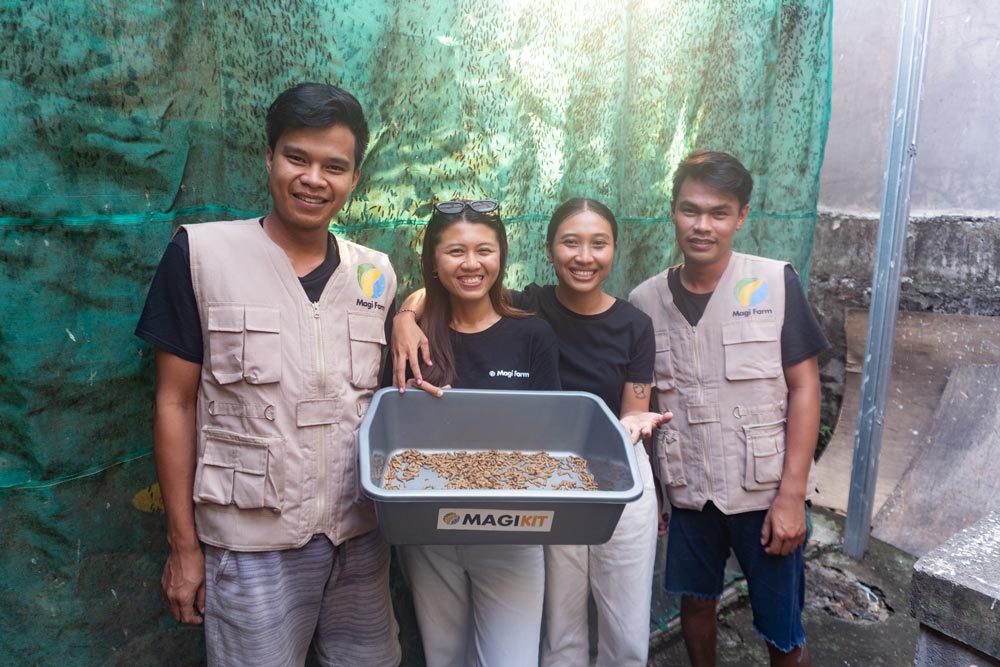
In addition to bringing sustainable and environmentally-friendly products to the market, Magi Farm created Magi Kits for households to take meaningful steps starting from their own kitchens. These self-managed waste kits are filled with larvae that eat food waste from households. “We understand that a journey towards waste reduction and sustainability is ongoing. However, we remain dedicated to inviting others to join us in making a positive impact on our environment and future generations” Ima explains. “We firmly believe that every action, regardless of size, matters.”
Ima believes a greener future starts with proper waste management. The team at Magi Farm remains dedicated to raising awareness and encouraging more people to join in their efforts. In the end, Magi Farm stands as a beacon of innovation and environmental pioneering, proving that even the smallest creatures can make a monumental impact. As they continue to grow and inspire, they invite everyone to be a part of this journey towards a cleaner, greener and more sustainable Bali.
+62 81237341714 | @magifarm.id

